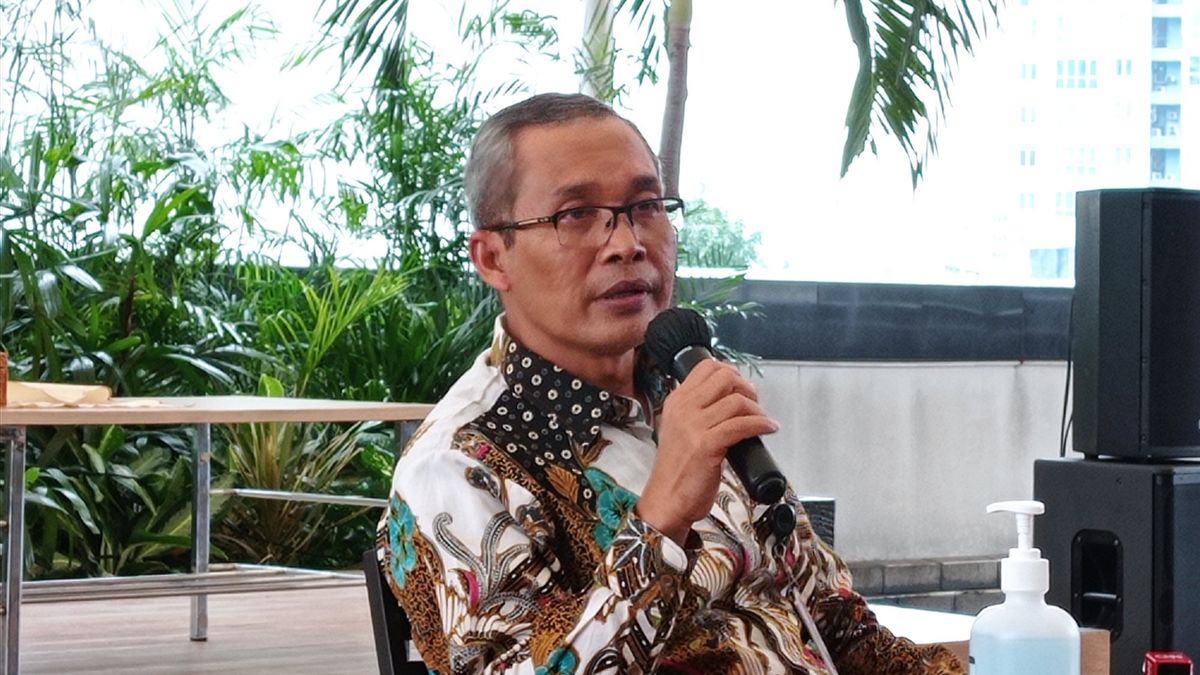JAKARTA - The Corruption Eradication Commission (KPK) said the lengthy process of the Supreme Audit Agency (BPK) often hampered the calculation of state losses in the process of procuring goods and services. This reason then made the anti-corruption commission try to calculate it on its own.
This is at least the reason the KPK then calculated state losses in the corruption case that ensnared former President Director of PT Pelabuhan Indonesia II (Persero) Richard Joost Lino alias RJ Lino.
Deputy Chairman of the Corruption Eradication Commission Alexander Marwata initially explained that proof of state finances was often a complaint by prosecutors, including those who served in the regions. According to him, even though he asked for assistance other than the BPK, namely the Financial and Development Supervisory Agency (BPKP), the audit process still took a long time.
"So far, investigators at the prosecutor's office in the area have often been hampered. They always complain about the length of the audit, even though they don't only ask the BPK but actually ask the BPKP more," Alexander told reporters at the KPK's Red and White Building, Kuningan Persada, South Jakarta, Tuesday, December 21.
For this reason, Alexander said, the KPK leadership encouraged the calculation of state losses to be carried out on their own. Moreover, the process of prosecuting RJ Lino must be accompanied by the calculation because it involves the procurement of goods and services.
"I encourage the leadership to encourage the calculation of state losses regarding the procurement of goods and services (PBJ) and that has been done," he said.
Alexander said the calculation itself did not violate Supreme Court Circular Letter (SEMA) Number 4 of 2016. The reason is that the role of the BPK auditor as regulated in the letter has also begun to be replaced by BPKP.
"From there, actually SEMA has lost its meaning. Because fellow investigators asked BPKP for help for audits," said Alexander.
Investigators continued Alexander could actually calculate state losses. Bearing in mind, the final decision regarding the loss is the judge's decision.
"In the decision, it states how much the state has lost and who will be responsible for returning the state's losses," he explained.
"So the judge's decision is actually. The audit results are actually only a kind of tool for judges to reveal the occurrence of the state loss process. Is it binding? Oh no. Of course it is not binding, the judge must agree," added Alexander.
As previously reported, RJ Lino was sentenced to 4 years in prison plus a fine of Rp. 500 million, subsidiary to 6 months in prison for being proven guilty of corruption in the procurement and maintenance of 3 QCC units in 2010 at Panjang Port (Lampung), Pontianak (West Kalimantan), and Palembang Port (South Sumatra). .
However, Rosmina as the chairman of the panel of judges submitted a dissenting opinion and stated that RJ Lino had no malicious intent so that he could not be sentenced.
Even so, he was still found guilty because two judges, namely the first member judge Teguh Santoso and the second member judge as ad hoc corruption judge Agus Salim. Both believe that RJ Lino committed corruption.
The English, Chinese, Japanese, Arabic, and French versions are automatically generated by the AI. So there may still be inaccuracies in translating, please always see Indonesian as our main language. (system supported by DigitalSiber.id)













